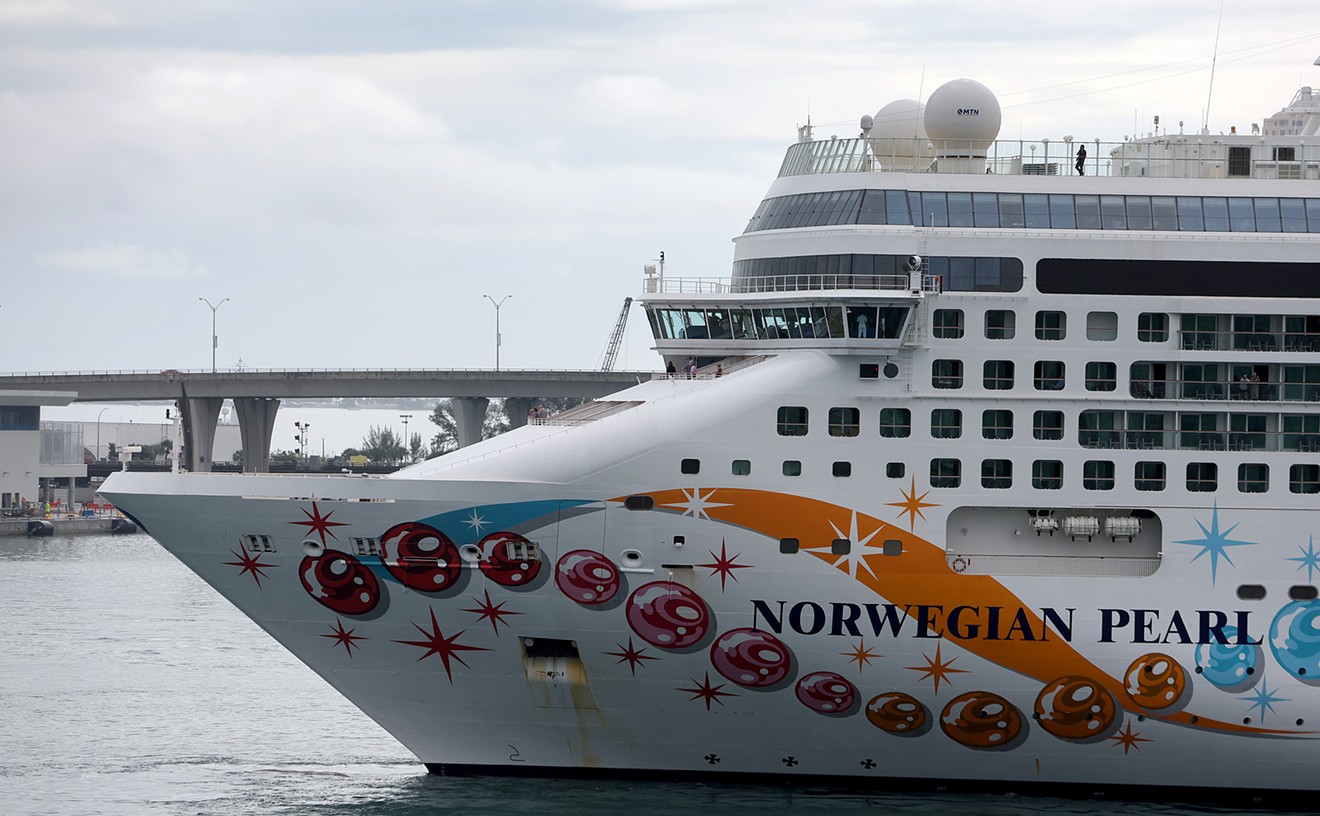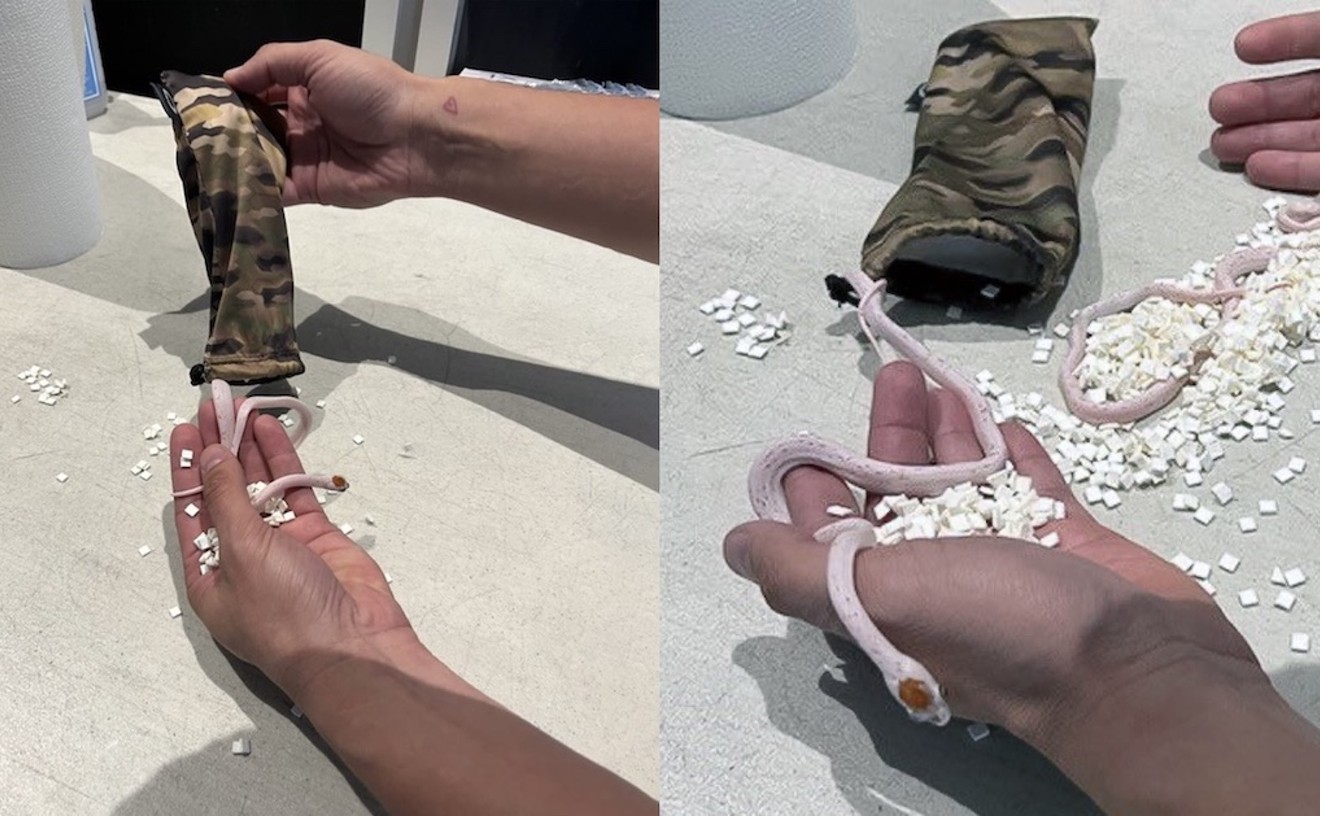Last Friday evening, as the sun was setting, 21 Cuban refugees carried their handmade boat to freedom on Marquesa Key. Silvio Hernandez, a 29-year-old from Mariel, documented their arrival using his Galaxy S3 cell-phone camera. His cousin Raydel Moreno uploaded it to YouTube Monday afternoon. Since then, the video has garnered more than 20,000 views.
"¡La yuma!" Hernandez shouted as their boat approached American soil.
This was Hernandez's 12th attempt at immigrating to America. For others on the boat, like
"That’s why we were hurried," Hernandez says. "They say to go now because the law might change."
The last time Hernandez and Guevara tried reaching Miami was December 12, 2015. They were close to arriving when a U.S. Coast Guard vessel approached them. They were told to turn off their motor, taken aboard, and sent back to Cuba.
"We had to pay 3,000 pesos a head. If you work for the state, you're only getting 500 pesos a month. So you have to save, sell things, do what you have to do to make that money," Hernandez explains. "I left a 200-peso debt over there because I didn't have a way to pay it."
This time, the only things that passed by Hernandez's boat during their 18-hour journey were dolphins, whales, and a petroleum freighter in the distance. He and his group of neighbors, friends, and family had been waiting for Obama to leave the island to avoid increased security.
"We think Obama told the U.S. Coast Guard to soften up after seeing how bad things are in Cuba," he says, laughing.
Hernandez began collecting materials about 20 days ago. After 11 failed attempts, he didn't want to repeat rookie mistakes. The hardest part was finding the right motor, which in previous attempts had stopped working. He went to a mechanic in Artemisa and found a large truck motor at a good price.
"It took two days to build. We put the motor in on the third day, and the last thing was tirarse," he says.
On March 31 at 11 p.m., Hernandez drove the group to a river by the bay. They ditched the car, lowered the boat into the water, and, one by one, jumped in. Some men on the boat fell victim to seasickness, but for Hernandez, it wasn't a big deal.
"Maybe the first time, yeah, it’s bad, but this for me was like going on a stroll," he says. "You’d see people there throwing up, yelling, 'Turn back — I can’t handle this!' And I’d say, 'You made a decision, this is pa'
A fisherman found the group on Marquesa Key and drove them to the U.S. Coast Guard. They were interrogated and put in touch with a Catholic Church in Doral that has set them up with food, clothing, and housing at an Extended Stay America. Once their papers arrive from Cuba, Hernandez and the rest of his group were told, they will be sent to San Diego, where another organization will provide them with work and housing.
"What can I do? I don't have anywhere to go over here," Hernandez says. "It will be a good start for us. In
Hernandez and Guevara hope to visit Cuba in the next couple of years. They still have family there, and "el











